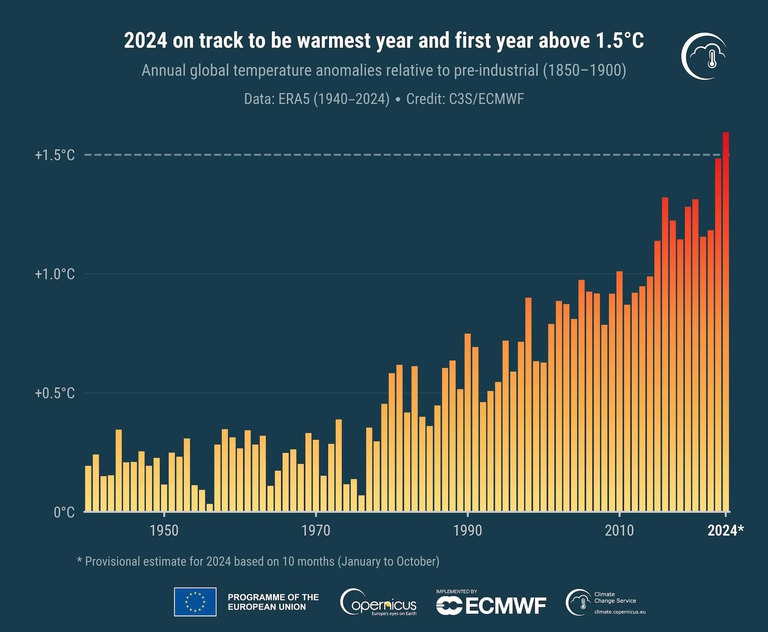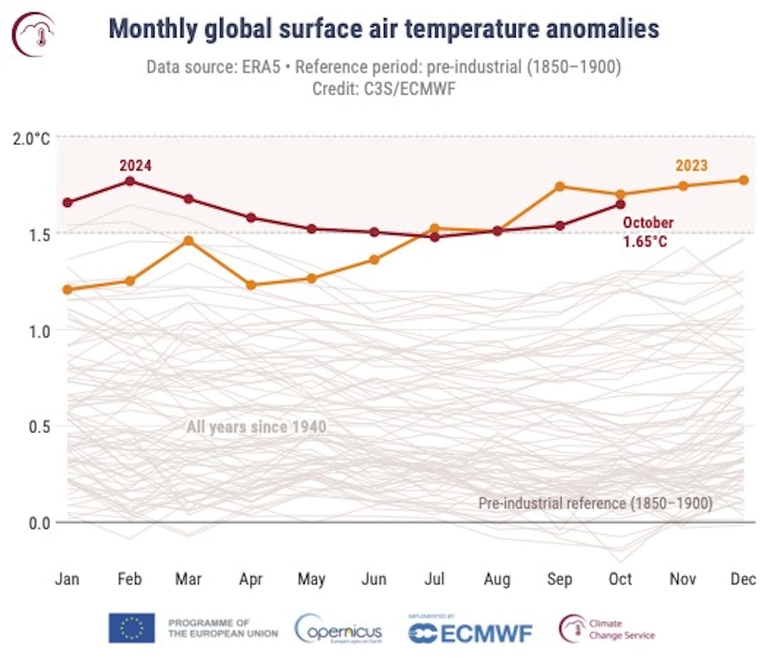https://www.lifegate.it/clima-2024-riscaldamento-globale-record-copernicus
- |
2024 it will most likely be thehottest year never registered on Earth in the post-industrial era.That is, since we started burning coal, oil and gas to fuel our production systems, profoundly changing the climate.But it's not "just" yet another record set by the company global average temperature:the most alarming factor is that this is the first year, since the mid-nineteenth century, which, barring extraordinary surprises, will end with a global warming Of over 1.5 degrees centigrade.That is, the threshold that we should not exceed in order not to go from a crisis situation to one climate catastrophe.
A new alarm bell on the climate, this time also symbolic
A few days before the start of the twenty-ninth United Nations World Climate Conference (the Cop29 scheduled in Baku, Azerbaijan starting from Monday 11 November), thus comes not only a further alarm bell, but also a symbolic warning, linked precisely to the threshold indicated as the most ambitious objective by the 2015 Paris Agreement.

The data has been released from the European climate monitoring service Copernicus, according to which the month of October of 2024 was the second warmest on record (the record remains that of October 2023).Precisely such data makes “practically certain” that it will be yet another record year:last month the average air temperature on the surface of the land and oceans was 15.25 degrees centigrade:0.8 degrees higher than the average for the period 1991-2020 and 1.65 degrees higher than the period 1850-1900.
2024 could end with global warming of +1.55 degrees centigrade
On the other hand, October was the fifteenth month, out of the last sixteen, during which an average global temperature was recorded 1.5 degrees centigrade higher than in the pre-industrial era.Furthermore, in the last twelve months (from November 2023 to October 2024), it remained 0.74 degrees above the period 1991-2020: it is the highest figure ever recorded for this period, warmer by as much as 0.16 degrees compared to the previous window (November 2022-October 2023).

“We are seeing a new stage in global temperature records, which is expected to serve as a catalyst for increase ambitions at the next Cop29”, he commented Samantha Bugress, deputy director of the Copernicus service.Who specified how, to prevent 2024 from proving to be the hottest ever recorded, the thermal anomaly between now and the end of the year must be practically zero.Which has never happened before.On the contrary, with current trends it is possible that 2024 will be archived with a temperature of even 1.55 degrees above the pre-industrial era.
